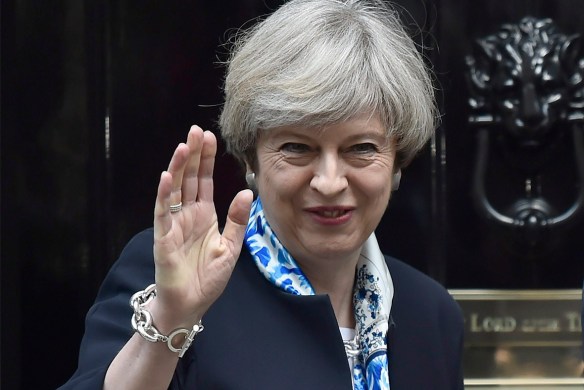 Stay or go?
Stay or go?
Mar 28, 2019
ARLINGTON, VA -- Each day brings a new twist on Brexit and when and how the United Kingdom will exit the European Union. While that drama plays out, U.S. rice exporters have customers to serve in what has been a single market since 1973 and looks to continue to be one, but for how long is anyone’s guess.
As of today, the U.K. remains a member of the EU and access for U.S. rice is largely governed by a 38,000 MT tariff rate quota (TRQ) for milled rice across all 28 member states. Sales in excess of the TRQ do occur, but are limited because they face a duty of the equivalent of just under $200/MT. U.S. rice exports to the EU in 2018 were 54,200 MT, valued at $45.4 million, of which 45 percent went to the U.K.
Plans by the U.S. Administration for a free trade agreement with the U.K., which USA Rice supports, are on hold while the situation in Europe sorts itself out. The other trade agreement in the mix – with the EU – is also on hold because Brussels wants to exclude agriculture market access while the United States, with the support of USA Rice and nearly all U.S. agriculture, is insisting that agriculture has to be part of any free trade deal.
“We have been looking for an opening for many years in Europe to change the terms of access for U.S. rice and improve our competitiveness,” said Terry Harris, chair of the USA Rice International Promotion Committee and an Arkansas miller. “Brexit and the potential trade agreements with the U.K. and EU offer those opportunities, but we have some uncertainty ahead of us first.”
The original departure, or Brexit, date for the U.K. was March 29, but failure of the U.K. government to gain Parliament’s approval of an exit deal and fear of a “hard Brexit” resulted in a postponement of sorts. EU leaders have given Prime Minister Teresa May until April 12 to have Parliament approve the exit plan it has already twice rejected and thereby allow further negotiation on implementing that plan until May 22, at which point the election process for the European Parliament begins and the U.K. would need to leave the EU or remain and take part in the elections. A complicating factor is a successful move earlier this week by Members of Parliament to take control of the Brexit agenda in the House of Commons away from the Prime Minister. Yesterday, May told a meeting of Tory MPs she would leave office earlier than planned if it guaranteed Parliament's backing for her withdrawal agreement with the EU.
One of the potential options, a “hard Brexit” means the U.K. stands outside the common customs union of the EU. In anticipation of this, the U.K. issued last week a full stand-alone tariff schedule that provides for duty free access for brown rice; a 75,000 MT annual TRQ for milled rice with an over quota duty of $164/MT; and a broken rice duty of $73/MT.
“This provisional U.K. tariff regime is certainly more favorable on its face than what we currently face in the EU, but we will need to study it closely and watch carefully implementation if it comes to pass,” concluded Harris.